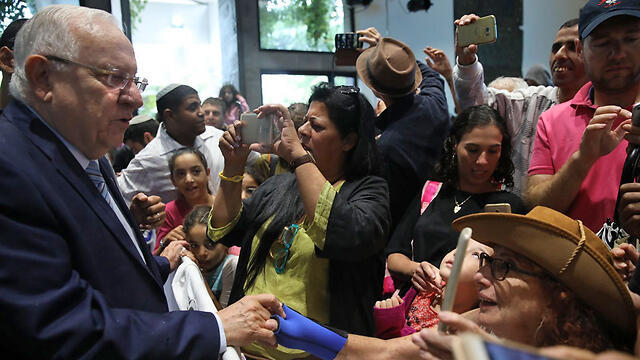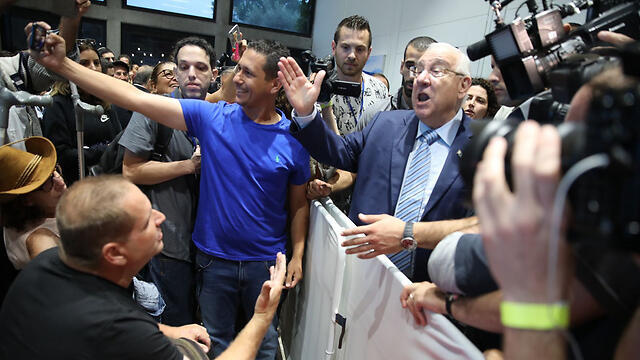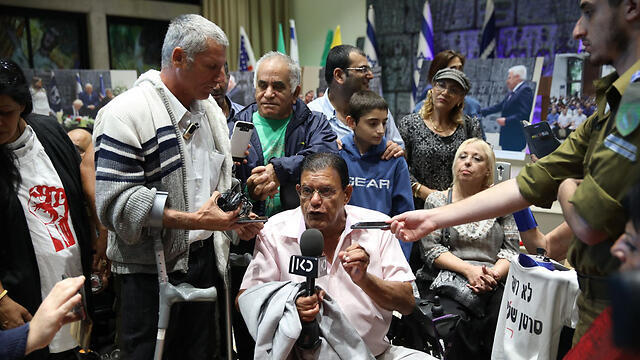Getting your Trinity Audio player ready...
Some 30 representatives from activist groups for people with disabilities who oppose the recently-signed agreement on disability benefits visited President Reuven Rivlin's Open Sukkah on Monday and asked for his support.
The protesting groups, who demand to raise disability pensions to equal minimum wage, urged Rivlin to meet with them.
At first, the president asked them to schedule another time for a meeting, explaining, "Today, I am welcoming all citizens of Israel to the sukkah." He eventually acquiesced and met with five representatives.
"The State of Israel, the Israeli government and the prime minister understand completely that the social issue—with the lives of people with disabilities and their needs at its core—is at the heart and soul of the State of Israel," Rivlin said in a statement following the meeting. "I would like to once again emphasize: a society that does not take care of its weak members is not worthy of being called a society. I know we, as a society, do all we can to ensure people with disabilities will receive the proper assistance they need."
Rivlin told the activists he was willing to assist them, adding, "I've been dealing with this issue for 30 years now as a public servant. I think we've never been closer to reaching improvements on the matter."
In recent months, different activism groups for the disabled have blocked major roads and junctions across the country, causing heavy congestion. About two weeks ago, the government signed an agreement with the Histadrut Labor Federation and representatives of some of the groups to raise disability benefits.
According to the agreement, to be enacted into law, disabled persons with a 100 percent disability rate will receive an increased NIS 4,000 pensions in four increments, starting January 2018 until January 2021. The total cost of this raise is estimated to be around NIS 4.2 billion a year.
But some of the disabled groups, including one dubbed the Disabled Panthers and people disabled by polio, came out against the agreement.
Lavi Naor, a spokesperson for the Disabled Panthers group, said following the meeting: "We've explained the distress of people with disabilities to the president and asked him to intervene on the benefits issue. We came to tell him we've come together to make up a large group that is going to be influential. We're formulating an alternative agreement, and we will present it soon. The president told us he would support us and help us as much as possible and convey our message to the prime minister and the ministers."
Ofer Sofer, who leads the disabled activism group The A-Team, said that "The president gave us his word he would act on the matter. He said he would talk about it in the Knesset and with the ministers who come to meet with him, promising he'd keep raising the matter every week. We are continuing with our struggle and escalating it. He has given his blessing and support to our struggle. He also said he knows progress is being made, and we will see the results of it soon."
Yehuda Doron, the head of the group for people disabled by polio, added, "We came as several groups united into one. Our objective was to come and speak to the president, whom we know as a former Knesset speaker who was very supportive of all of our struggles ... What's happening right now is a disgrace. We will fight to the end so all people with disabilities would receive aid. We're continuing the struggle and we're not stopping."





